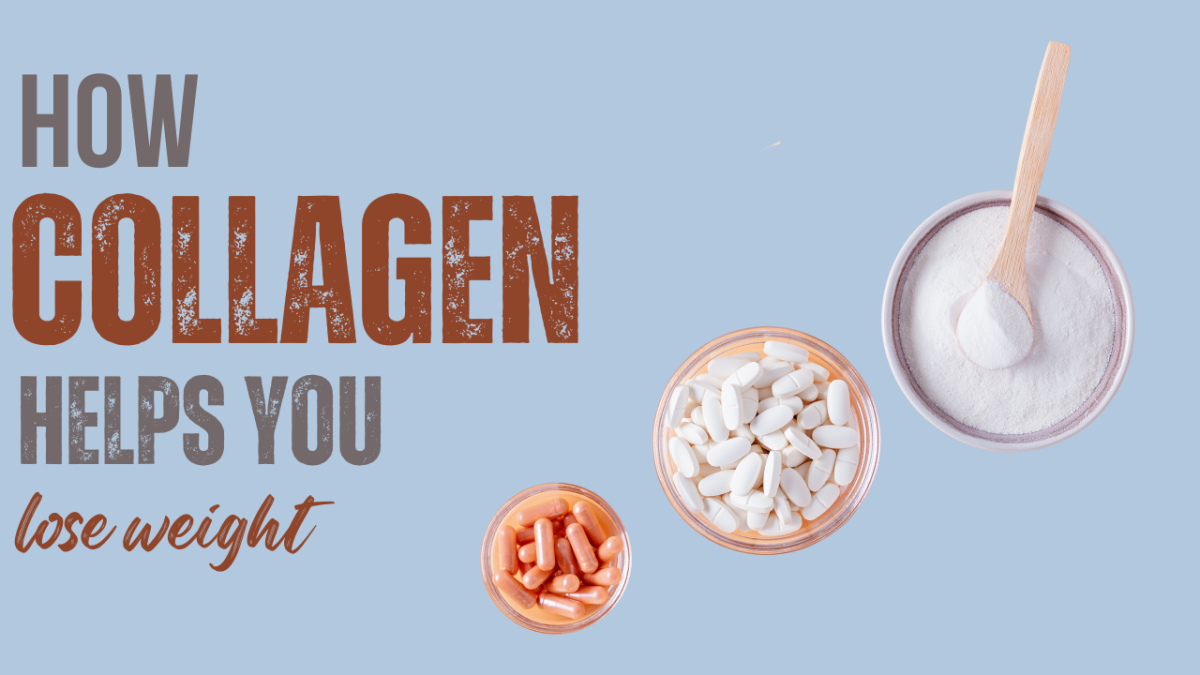Can Collagen Peptides Help You Lose Weight

The aroma of freshly brewed coffee swirled in the air, mixing with the gentle clinking of spoons against ceramic. Sunlight streamed through the kitchen window, illuminating dust motes dancing above a woman meticulously scooping a spoonful of powder into her morning smoothie. She's one of countless individuals now incorporating collagen peptides into their daily routine, hoping to unlock a secret weapon in the ongoing battle against the bulge. But does this trendy supplement truly live up to the hype?
The question on many minds: can collagen peptides, the seemingly ubiquitous supplement promising everything from radiant skin to stronger joints, also contribute to weight loss? While not a magic bullet, emerging research suggests that collagen peptides may play a supportive role in weight management by promoting satiety, preserving lean muscle mass, and potentially influencing metabolism. However, it's crucial to understand the science behind these claims and separate fact from fiction.
The Collagen Craze: A Deep Dive
Collagen, the most abundant protein in the human body, acts as the scaffolding that holds us together. It provides structure to skin, bones, tendons, and ligaments. As we age, collagen production naturally declines, leading to wrinkles, joint pain, and other age-related issues.
Collagen peptides, also known as hydrolyzed collagen, are essentially collagen proteins that have been broken down into smaller, more easily digestible fragments. This process allows them to be more readily absorbed into the bloodstream, theoretically maximizing their potential benefits.
Beyond Beauty: The Potential Weight Loss Connection
The appeal of collagen peptides extends far beyond cosmetic enhancements. The potential role of collagen in weight management is gaining traction within the scientific community.
One key area of interest is collagen's ability to promote satiety. Protein, in general, is known to be more satiating than carbohydrates or fats. Collagen peptides, being a concentrated source of protein, may help individuals feel fuller for longer, reducing overall calorie intake.
A study published in the Journal of Nutritional Science and Vitaminology found that participants who consumed collagen hydrolysate experienced a significant reduction in hunger compared to those who did not. This suggests that collagen supplementation could potentially aid in weight loss efforts by curbing appetite.
Furthermore, collagen may play a role in preserving lean muscle mass during weight loss. Muscle tissue is metabolically active, meaning it burns more calories at rest than fat tissue. Maintaining muscle mass is crucial for boosting metabolism and preventing the dreaded "yo-yo" effect often associated with dieting.
While more research is needed, some studies suggest that collagen supplementation, combined with resistance exercise, can help preserve and even increase muscle mass. This could lead to a more favorable body composition and improved long-term weight management.
The Evidence: Separating Hype from Reality
While the initial findings are promising, it's crucial to approach the topic of collagen and weight loss with a healthy dose of skepticism. The existing research is still relatively limited. More large-scale, randomized controlled trials are needed to confirm these initial findings.
It's also important to note that collagen peptides are not a standalone solution for weight loss. They are most effective when combined with a healthy diet and regular exercise. Relying solely on collagen without making other lifestyle changes is unlikely to produce significant results.
Furthermore, not all collagen supplements are created equal. The quality and source of collagen can vary significantly. It's essential to choose a reputable brand that uses high-quality collagen and has undergone third-party testing for purity and potency.
"Collagen can be a helpful addition to a healthy lifestyle, but it's not a magic bullet," says Dr. Emily Carter, a registered dietitian specializing in weight management. "Focus on a balanced diet, regular exercise, and adequate sleep first, and then consider collagen as a potential supplement to support your goals."
The U.S. Food and Drug Administration (FDA) does not regulate supplements in the same way it regulates drugs. It's crucial to do your research and choose products from reputable manufacturers.
Incorporating Collagen into Your Diet: Practical Tips
If you're considering adding collagen peptides to your diet, there are several ways to do so. The most common form is a powder that can be easily mixed into beverages, smoothies, or yogurt.
Collagen peptides are generally tasteless and odorless, making them a versatile addition to various recipes. Some people also prefer to take collagen in capsule form, although this may be less convenient for those who want to incorporate larger doses.
When choosing a collagen supplement, look for one that is hydrolyzed, as this indicates that the collagen has been broken down into smaller peptides for better absorption. Also, consider the source of the collagen. Bovine (cow), porcine (pig), and marine (fish) collagen are all common options.
Bovine collagen is a good all-around choice, while marine collagen is often preferred by those who are concerned about sourcing from land animals. Porcine collagen is a less common option, but it is also effective.
It's always a good idea to consult with a healthcare professional before starting any new supplement regimen, especially if you have any underlying health conditions or are taking medications.
The Takeaway: A Holistic Approach
While the potential weight loss benefits of collagen peptides are intriguing, it's important to maintain a balanced perspective. Collagen is not a quick fix for weight loss.
Instead, it should be viewed as a potential supportive tool that can complement a healthy lifestyle. A holistic approach that combines a balanced diet, regular exercise, and adequate sleep remains the foundation for sustainable weight management.
The woman in the sun-drenched kitchen wasn't just adding powder to her smoothie; she was investing in a lifestyle, one scoop at a time. Perhaps collagen peptides can play a small, yet significant, role in that journey. The key is to approach it with knowledge, realistic expectations, and a commitment to overall well-being.


















